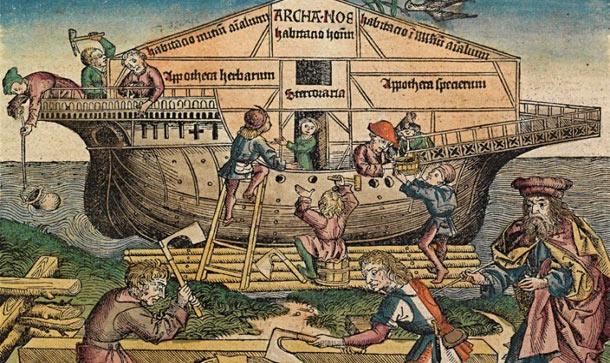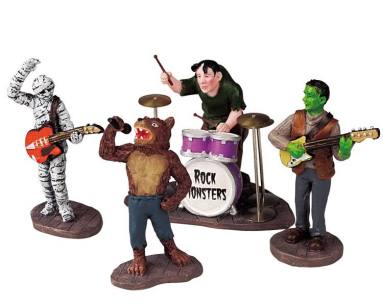Noah was directed by the enigmatic Darren Aronofsky who had directed other films such as Pi, The Tree of Life, and Requiem for a Dream. Oh and that controversial one, The Black Swan. He is no stranger to edgy. After seeing the first two movies, I was dwelling on the ideas and themes for days afterwards. Even now, at the mention of them, I still have questions and insights.
So when I heard he was doing Noah, I was excited. What was he going to do? How would he portray a character that had been so misconstrued by culture already?
Misconstrued?
Yes. Misconstrued. Who here has never had Noah and the animals on the ark as a wallpaper or a nursery picture? It’s cute right? Noah on a boat with some giraffes sticking their heads up and a bird or two circling around. If you were lucky, there would also be some really happy looking waves with fish and such.
That same weekend, another “Christian” movie was playing. God’s not Dead played next door to the Noah movie. The choice was there but the decision was easy to make. Watch a movie where stereotypes and caricatures had it out with a Duck Dynasty member thrown into the mix or see a movie with a Hollywood budget and rock monsters (more on that in a moment)?
Leading up to this post, I have read countless reviews from both multiple viewpoints.
The movie was offensive.
The movie really destroyed the actual story.
Rock Monsters?
It was a good witnessing tool.
The movie pushed people to read the Bible.
Rock Monsters?
I will not critique the different movie points. Many good reviews do that already. I even loved the article arguing the movie was a gnostic retelling of the story.
Why was Noah a good movie?
Did you hear the cries of the people as God punished creation? Did you see the desperation in Noah’s eyes as he heard their screams? Did you get how Noah saw himself as wicked as well? Did you see how Noah tried to grapple with what he felt God was telling him?
In Noah I saw more reality than I had in other “Christian” movies. I felt the art pull me into the story, into Noah’s desperation. I cringed as the whole world was reduced to seven, then nine, then eight people. I felt the anguish of the mother as Noah held the knife over the heads of the babies. And then I felt the relief as Noah relinquished and let them live.
There were real problems and they weren’t all nice and solved at the end of the movie. We were left to deal with the consequences of Noah’s actions. Do you know why he was drunk at the end? Because he had failed his version of God.
“His version of God? God told him to kill the babies.”
Did God really tell Noah to kill the babies? Think back to Noah’s logic. Remember when he went into Tubal Cain’s camp to find his sons women? Remember that bedraggled man he saw that ate the flesh of animals or humans or whatever? He was seeing himself as God saw man. Evil. Wicked. Rebellious.
This was either Aronofsky’s big flaw or his brilliance at play. As he is reportedly an atheist, I would say flaw but I could be wrong.
What does scripture say about how God saw Noah? God saw Noah as righteous (Genesis 6:9). Here is an excellent article on why this is. If Aronofsky knew this to be true, then this is brilliance. Noah is really a commentary on some Christian’s today. We forget that God sees Jesus instead of our sin when He looks at us. In the movie, Noah had some bad theology. When he arrives back to the ark and locks everyone in, he reveals his plan. As sin wasn’t the result of people’s actions but something inherent in them from the beginning, Noah figures God wanted them to die out and extinguish the human race.
Did God say this? I found myself asking “If God wanted to kill off all of humanity, why save Noah and his family then? Wouldn’t the fate of being the last man on earth be worse than a death by the catastrophic flood?
Noah is misreading God. This is Aronofsky’s second brilliant point, one which I think he probably meant to flesh out. Christians, me included, have the tendency to take the Word of God and twist it to fit their message, their ideologies, and their “convictions”. Now, this doesn’t excuse Aronofsky for making God a mute deity who speaks through visions and signs but isn’t that how many in the American Church see God today? But I digress.
I see the proof of Noah misreading God fleshed out in the end when Noah gets back with his family and passes on the birthright to his oldest son, essentially telling him to carry on filling the earth. It is then that we see rainbows filling the sky. Noah goes from ending all of life and doing as God had intended- encouraging life to flourish. This is when we see full closure, a real ending to the narrative.
Yes, there is a lot in the movie that really trounces the Biblical text. But it did get me to think about the nature and character of God way more than any other “Christian” movie ever has.
Appendix A
(ROCK MONSTERS!!!!)
Ok. Let’s talk Rock Monsters.
Due to the alliterate state of the American Church, I doubt most Christians have heard or dealt with the Books of Enoch.
“No, I totally have. He’s that guy that walked with God and then he was not because God took him.”
The books of Enoch introduced us to some of the more interesting Angel lore. This is the book Jude might have been talking about when he wrote about Michael and Satan arguing over Moses’ body. The Watchers also show up in the book of Daniel.
So, in angel lore, the Watchers, or Grigori, are “Servants of the most high” who form the inner council of God and relay His messages to Earth. Some also think that they are involved with human governments, helping man pass decrees and laws and such. Also, as the root for their name indicates, it is thought that these beings never sleep and thus are always “watchful.”
There is also within angle lore the idea that these angelic hosts were the ones who fell from the heavens and, after lusting after women, produced nephilim. Interestingly enough, the books of Enoch implied it was this transgression that brought about the flood.
If nothing else, scholars believe this gave the exiled Israelites hope. They had been taken from their promised land and the temple was in ruins. The presence of God was no longer with them. Despite this, there was a hope for exiled Israel as “it is possible these angels may be mere reflectors of Yahweh Himself. He is the keeper of Israel who never slumbers nor sleeps (Ps. 121:4), and the One whose eyes range throughout the whole earth (Zec 1:10; 3:9; 4:10).”
I would figure, therefore, that Aronofsky combined the two major characterizations, the fall of the Watchers and their tendency to help mankind, and formed a whole new “monster.” So calm down, these are not really inconceivable and are more biblical than you probably knew (with some poetic licensing added).
For the details regarding the Watchers, I referred to the Wikipedia page and my International Standard Bible Encyclopedia: Vol 4 Q-Z. The pictures are not mine.

